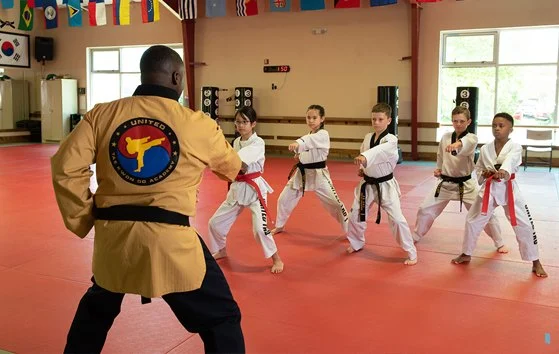
The Art of Teaching Tae Kwon Do: Essential Skills Every Instructor Needs
- Understanding the Role of a Tae Kwon Do Instructor
- Key Skills Every Tae Kwon Do Instructor Should Master
- Teaching Techniques for Effective Tae Kwon Do Classes
- Building Strong Relationships with Students
- Real-life Story: A Tae Kwon Do Instructor's Journey
- Where to Find Training Resources for Tae Kwon Do Instructors
Understanding the Role of a Tae Kwon Do Instructor
Teaching Tae Kwon Do is much more than simply demonstrating kicks and punches. A Tae Kwon Do instructor plays a critical role in shaping students' physical, mental, and emotional growth. An instructor’s role goes beyond just teaching techniques; they must motivate, inspire, and instill discipline in their students. Understanding the full scope of this responsibility is essential for becoming an effective Tae Kwon Do teacher.
In addition to teaching techniques, a Tae Kwon Do instructor is responsible for creating an environment where students feel challenged, supported, and motivated. Effective instructors adapt their teaching style to meet the needs of each individual student, encouraging them to push their limits while promoting respect, humility, and perseverance.
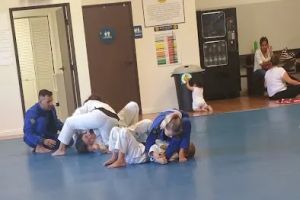
Gracie Humaita Hemet / gracie humaita hemet
HemetRiverside CountyCalifornia
2164 E Florida Ave, Hemet, CA 92544, USA
Key Skills Every Tae Kwon Do Instructor Should Master
Being a successful Tae Kwon Do instructor requires a combination of technical knowledge, teaching ability, and personal qualities. Here are the key skills every instructor should master:

Wolf MMA / wolf hills jiu jitsu
Falls ChurchFairfax CountyVirginia
7799 Leesburg Pike suite 110, Falls Church, VA 22043, USA
1. Mastery of Tae Kwon Do Techniques
First and foremost, a Tae Kwon Do instructor must have a deep understanding of the martial art’s techniques, forms (poomsae), and self-defense methods. Mastery of these techniques is crucial for teaching students effectively. As an instructor, you must demonstrate proper form and technique, providing corrections to students in real-time.
2. Effective Communication Skills
Clear communication is critical when teaching any martial art. Tae Kwon Do instructors must be able to explain techniques in a way that is easy to understand for students of all levels. Additionally, good communication involves listening to students’ concerns, answering their questions, and offering constructive feedback.
3. Patience and Empathy
Patience is key when working with students who may struggle with certain techniques or concepts. Each student learns at their own pace, so instructors must remain patient and empathetic, providing encouragement and support. Recognizing that all students have different learning styles will allow you to adapt your teaching approach to suit each individual.
4. Leadership and Motivation
A Tae Kwon Do instructor must be a strong leader. Your students look to you for inspiration and guidance. It’s essential to maintain a positive attitude, set a good example, and motivate students to achieve their goals. This also involves knowing how to challenge students appropriately without overwhelming them.
5. Classroom Management
Good classroom management is essential to maintaining a safe and respectful environment. An instructor should set clear expectations for behavior and enforce those rules consistently. This ensures that all students can focus on their training in a disciplined and supportive environment.
Teaching Techniques for Effective Tae Kwon Do Classes
In addition to mastering key skills, knowing how to teach Tae Kwon Do effectively is crucial. Here are some teaching techniques that can help you lead engaging and productive classes:
1. Break Techniques into Steps
Many Tae Kwon Do techniques, especially forms and self-defense movements, can be complicated for beginners. Breaking down each technique into smaller, manageable steps helps students understand the mechanics of each movement. Start by teaching the individual components and gradually combine them into the full technique.
2. Use Demonstrations and Visual Aids
Visual learning is powerful for martial arts students. When teaching a new technique, demonstrate it clearly so students can see exactly what they need to do. Consider using visual aids like videos or diagrams to reinforce key concepts.
3. Create Drills and Practice Routines
Repetition is essential for mastering Tae Kwon Do. Incorporating drills that focus on specific skills, such as footwork or strikes, can help students build muscle memory and improve their technique. Regular practice routines allow students to develop their abilities in a structured manner.
4. Provide Constructive Feedback
Offering constructive feedback is essential for a student’s growth. Instead of just pointing out mistakes, focus on providing solutions and positive reinforcement. Be specific in your feedback and offer ways for students to improve.
Building Strong Relationships with Students
Beyond teaching techniques, building strong relationships with your students is a key part of becoming an effective instructor. A positive relationship fosters trust, which can enhance the student’s learning experience. Here are a few strategies to build strong bonds with your students:
1. Show Genuine Interest in Their Progress
Take the time to get to know your students as individuals. Show interest in their personal goals and progress. This creates a supportive atmosphere where students feel valued and motivated to improve.
2. Encourage Personal Growth
While teaching Tae Kwon Do techniques is important, it’s also essential to promote personal growth in your students. Encourage them to develop qualities like discipline, respect, and perseverance both inside and outside the dojo. This helps them become better martial artists and individuals.
3. Create a Positive Training Environment
A positive and welcoming training environment is essential for student success. Celebrate students’ achievements, no matter how small, and maintain a motivating atmosphere. By doing so, students will feel inspired to continue learning and pushing their limits.
Real-life Story: A Tae Kwon Do Instructor's Journey
Many successful Tae Kwon Do instructors have inspiring stories of how they got started. One such story is that of David, a seasoned instructor who started his journey as a student in his early teens. He faced challenges along the way, from mastering complex techniques to overcoming his own self-doubt. However, with the guidance of supportive instructors and a passion for martial arts, he eventually earned his black belt and became an instructor himself. David now uses his experience to connect with his students and inspire them to push past their own challenges. His story serves as a testament to the impact of a dedicated instructor.
Where to Find Training Resources for Tae Kwon Do Instructors
If you're looking to further your skills as a Tae Kwon Do instructor, there are plenty of resources available to help you along the way. From books to online courses, there are numerous platforms where you can learn effective teaching methods, classroom management skills, and advanced techniques. Consider checking out Jeuns TKD Hub, which offers a range of training materials and products for both beginner and experienced instructors.

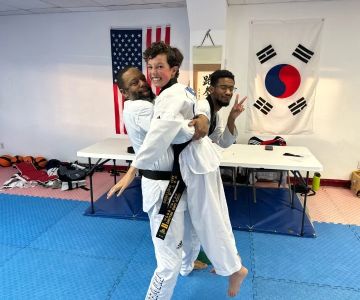
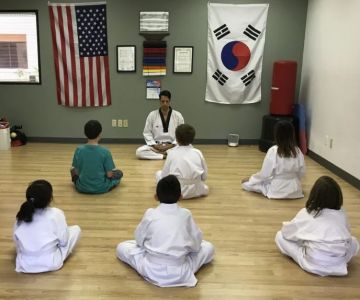
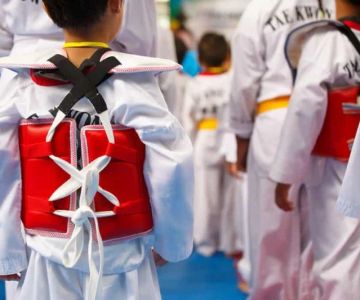
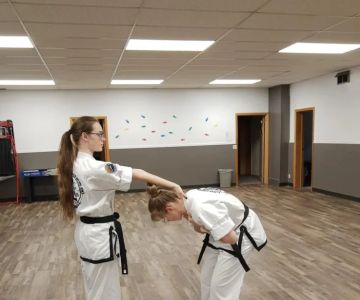
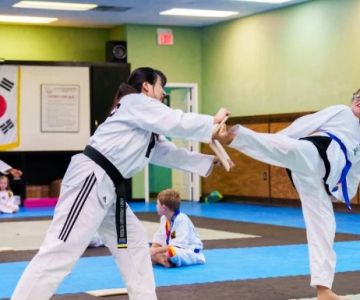
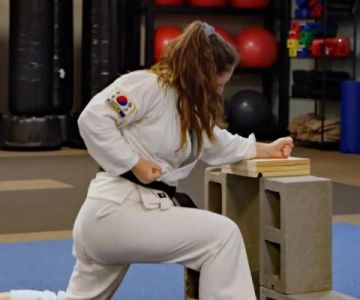
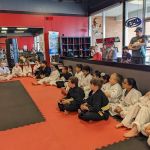 Karate Edge4.0 (74 reviews)
Karate Edge4.0 (74 reviews) Top Tier Martial Arts5.0 (19 reviews)
Top Tier Martial Arts5.0 (19 reviews)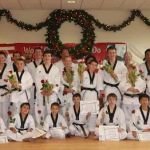 World Martial Arts - South Jordan4.0 (32 reviews)
World Martial Arts - South Jordan4.0 (32 reviews) Mastery Martial Arts - Coventry4.0 (34 reviews)
Mastery Martial Arts - Coventry4.0 (34 reviews) Premier Martial Arts - St. Louis, MO5.0 (24 reviews)
Premier Martial Arts - St. Louis, MO5.0 (24 reviews) Premier Martial Arts Academy1.0 (1 reviews)
Premier Martial Arts Academy1.0 (1 reviews)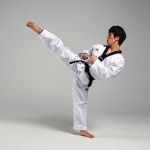 How to Execute a Jumping Roundhouse Kick to the Head
How to Execute a Jumping Roundhouse Kick to the Head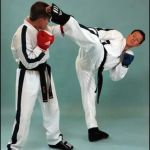 How to Execute a Double Kick Combination in Sparring
How to Execute a Double Kick Combination in Sparring How to Perform a Flawless Axe Kick: A Step-by-Step Guide
How to Perform a Flawless Axe Kick: A Step-by-Step Guide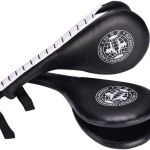 DIY Tae Kwon Do Training Equipment for Home Practice
DIY Tae Kwon Do Training Equipment for Home Practice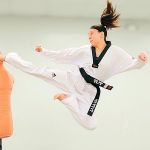 How to Increase Your Vertical Jump for Tae Kwon Do Flying Kicks
How to Increase Your Vertical Jump for Tae Kwon Do Flying Kicks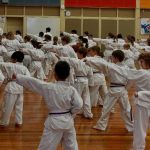 The History of the Tae Kwon Do Peace Corps
The History of the Tae Kwon Do Peace Corps